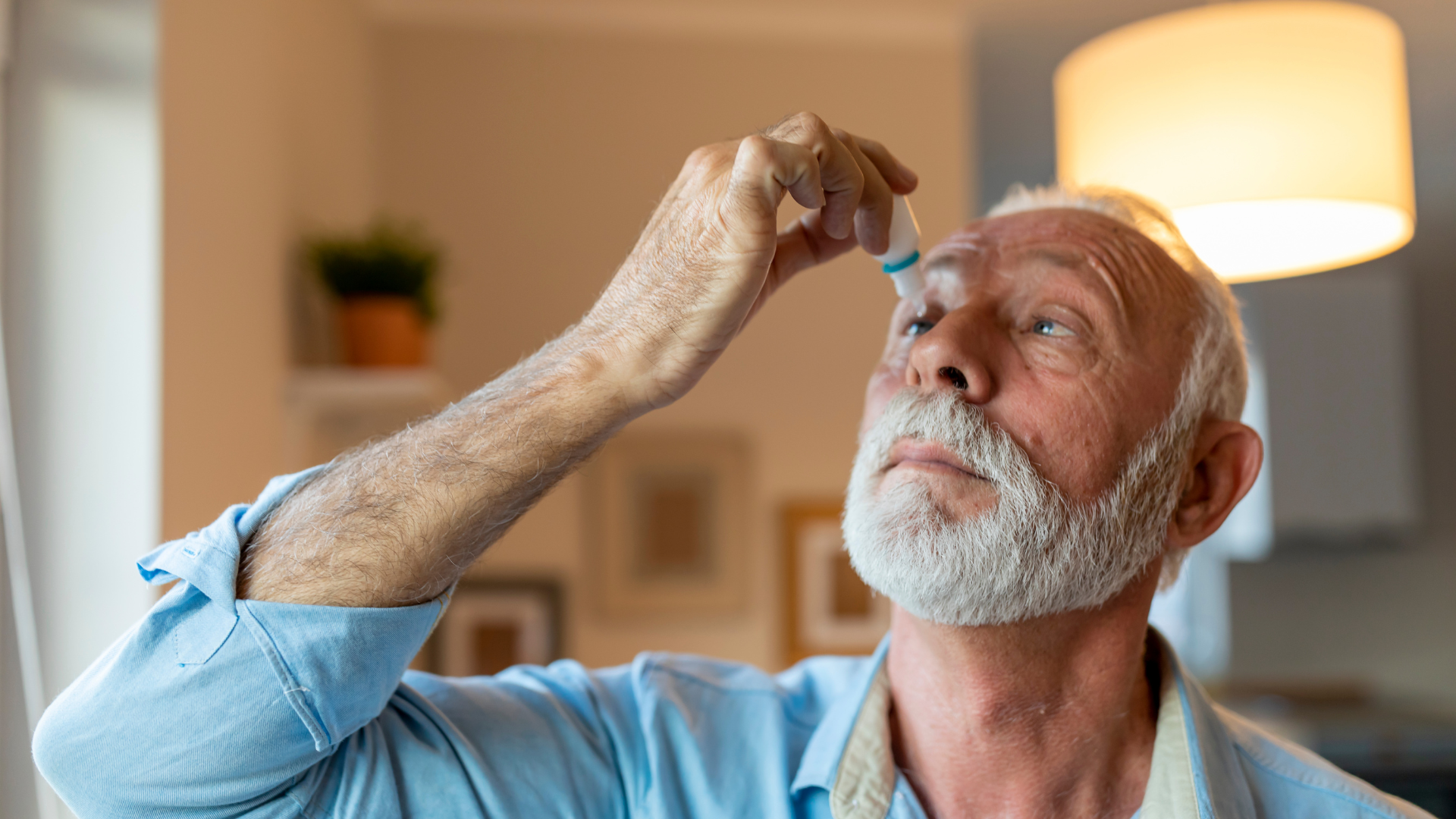
Top 7 eye drop tips for glaucoma
If you’re living with glaucoma, it’s likely that you will have been prescribed eye drops as a treatment. Eye drops are the most common treatment for glaucoma.
Eye drops help to decrease the amount of fluid in the eye. It’s this build up of fluid that causes pressure in the eye to increase which damages the optic nerve and leads to vision loss.
Eye drops are normally used between 1 and 4 times a day. It's important to use them as directed, even if you haven't noticed any problems with your vision. Your sight is at risk if you don't stick to the recommended treatment.
It’s common to occasionally have difficulty with eye drops and some patients can be worried about whether they are definitely being used correctly.
Below we have provided our top seven tips on using eye drops:
1. Refrigerate your drops
Our first recommendation is to keep your eye drops in the refrigerator. This has two advantages: when applying the cold eye drops, you can tangibly sense their entry into your eye, eliminating any uncertainty about whether you successfully applied the drop. Moreover, if you experience a burning sensation due to the eye drops or if you have dry eyes, the chilled drops can offer a refreshing feeling.
2. Locating the "Pocket"
People are often worried that the eye drop hasn’t entered the eye correctly, this bit of advice should help. Tilt your head back while sitting or standing. Alternatively, stand in front of a mirror for guidance. With your non-dominant hand's index finger, gently pull down your lower eyelid to create a "pocket." Look upwards and use your dominant hand to apply one drop into the lower lid's pocket. Keep your eye closed for 2 minutes. Use a clean tissue to wipe away any excess. If your hands are unsteady, stabilize the hand holding the bottle with your non-dominant hand, which is simultaneously pulling down the lower eyelid. For those with neck issues, lying flat while performing these steps without a mirror is also effective.
3. Maintain Hygiene
Prior to applying eye drops, ensure your hands are clean. Avoid contact between the dropper's tip and your eye, eyelid, eyelashes, or fingers. If the dropper tip becomes contaminated, use a clean tissue or rubbing alcohol pad to clean it. After each use, remember to tightly close the bottle to prevent contamination and avoid storing the eye drop bottle in pockets, cars, or direct sunlight, which could cause overheating.
4. Set a Reminder
Taking your eye drops at the right intervals is very important, but we all know that things can slip from time to time! To ensure regularity, try to apply it to a daily activity, like brushing your teeth. Use alarms or a chart to track usage. A chart is especially helpful if you often forget whether you've used your drops.
5. Timing
For twice-daily drops, aim for a 12-hour gap, and for thrice-daily drops, aim for 8 hours. Some flexibility (an hour or two) is acceptable. For once-daily drops, consider medication characteristics; some are better taken in the morning, others at night. If you're using ointments, apply them last to prevent a barrier from hindering subsequent drop absorption.
Also, if you’re taking other eye drops for other medication, allow a 5-minute interval between different eye drops to avoid washout.
6. Seek Guidance
If you’re concerned about your eye drops. It’s always useful to speak to an eye care professional. Show your eye drop technique to your ophthalmologist or optometrist for feedback. Alternatively if you have a local Eye Care Liaison Officer (ECLO), they would be more than happy to help.
7. Use eye drop aids
Finally, using eye drops correctly can be difficult, but there are several useful compliance aids available to help. There are many to choose from, Glaucoma UK provide great advice here
OcuPlan partner with over 100 consultant ophthalmologists and 500 optician stores all over the UK to provide the gold standard of care. From only £19.99 per month you can see a consultant ophthalmologist regularly without delay to review your condition. To learn more click here
About OcuPlan
OcuPlan offers the gold standard of clinical care for patients with long-term eye conditions to help minimise the risk of sight loss.